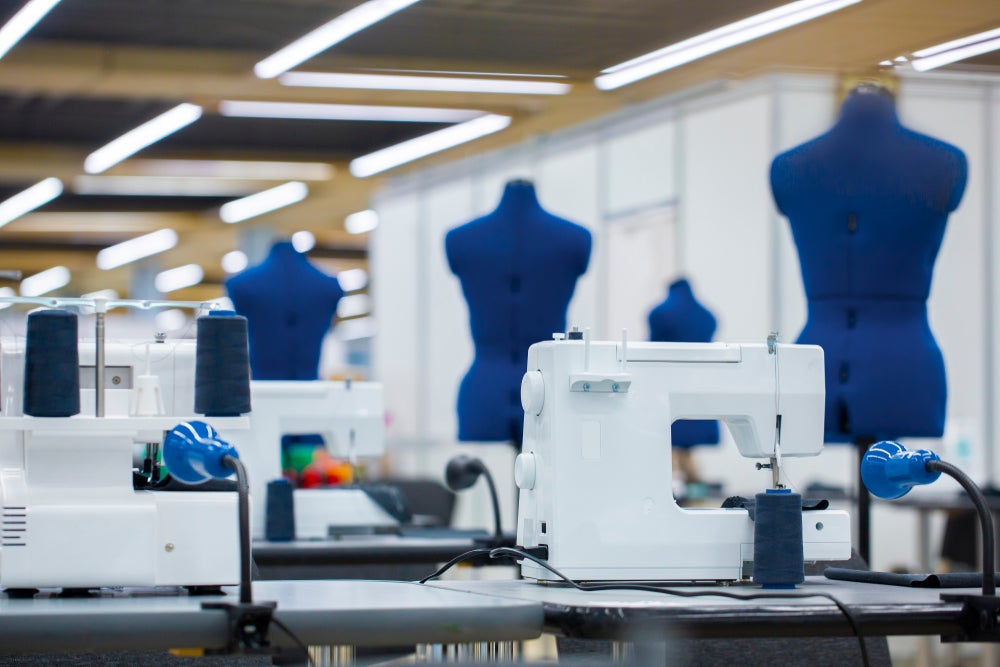
The report titled ‘Impact of Brexit and Covid-19 on the UK Fashion & Textiles Technology Ecosystem‘ proposes five key recommendations to support the growth and prosperity of the UK Fashion, Textile and Technology industry.
The report was published collectively by the Business of Fashion, Textiles and Technology (BFTT) led by the University of the Arts London and the Future Fashion Factory (FFF) led by the University of Leeds with the UK Fashion & Textile Association (UKFT)’s Adam Mansell as chair of the project.

Discover B2B Marketing That Performs
Combine business intelligence and editorial excellence to reach engaged professionals across 36 leading media platforms.
The report builds on a previous study published in July 2021, titled ‘Mapping the UK Fashion Textiles Technology Ecosystem,’ which revealed the main challenges the UK fashion, textiles and technology (FTT) industry would face in the next three to five years. The challenges included changes in consumer spending; funding, tax and business rates; trade policies and Brexit; and a shortage of FTT skills.
Mansell explains the new report highlights many of the ongoing issues faced by the UK fashion and textile industry, particularly those SMEs and micro businesses that makeup over 80% of the industry.
However, he is quick to point out that the report also marks the resilience and adaptability of UK fashion and textile companies when faced with challenges such as Brexit and Covid.
Key recommendations for future growth
- Reduce the cost and complexity of trade post-Brexit to increase access to global markets and improve competitiveness, particularly for start-ups and SMEs, such as through tax breaks, transparency, and clear guidelines.
- Grow capacity and competency of the UK FTT sector to reduce carbon footprint and create employment opportunities, such as through business development support, government subsidies, grants and incentives, training, and visa programmes for skilled workers.
- Build resilience post-covid through agility, flexibility and diversification to protect the financial sustainability of FTT businesses, such as through business guidance, mentorship and training.
- Drive digital innovation in the FTT sector to increase capacity, efficiency and sustainability such as through increased access to digital tools and training, particularly for start-ups and SMEs.
- Prioritise sustainable and ethical practices to address the climate crisis, and improve health and equity for all, such as through legislation, government incentives and grants, investment in infrastructure, accreditation and business guidance.
Mansell describes the UK’s departure from the EU the biggest change in the global trading environment in decades.

US Tariffs are shifting - will you react or anticipate?
Don’t let policy changes catch you off guard. Stay proactive with real-time data and expert analysis.
By GlobalDataHe says: “With the EU accounting for 75% of the UK’s fashion and textile exports and over 30% of the sector’s imports, the implications of the change in relationship was always going to be hugely significant.
“Despite the rhetoric, the UK EU Trade Continuity Agreement was not the simplest trade deal ever negotiated. The reality is (and was always going to be) a new trading relationship with significant administrative burdens, a large increase in costs and more limited movement of people and products.”
He suggests confidence in the UK as a supply base has fallen sharply with many European companies declining to do business with UK brands due to the new trading difficulties.
Mansell explains: “These difficulties are likely to increase with the development of the EU’s ambitious and comprehensive textile sustainability strategy. The strategy will see a dramatic increase in legislation requiring better monitoring and reporting for all fashion and textiles sold in the EU and will apply to UK suppliers.”
This research was a collaborative project with support and funding from the Arts and Humanities Research Council (AHRC), BFTT, FFF, ESRC Impact Acceleration Account (ESRC IAA), Leeds University Business School (LUBS), UAL LCF Fashion Business School, UKFT and UK Research and Innovation (UKRI).





